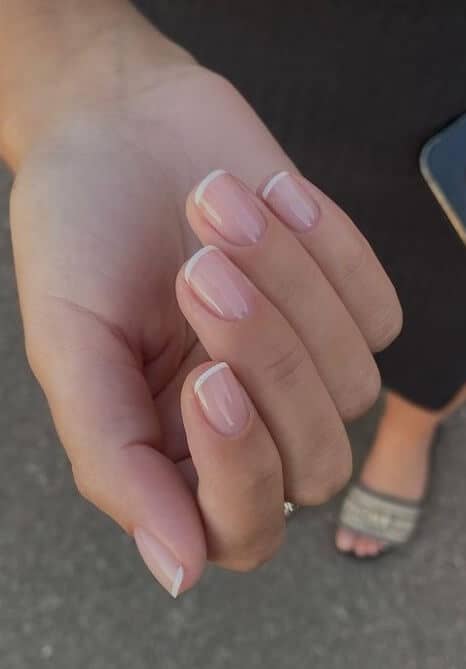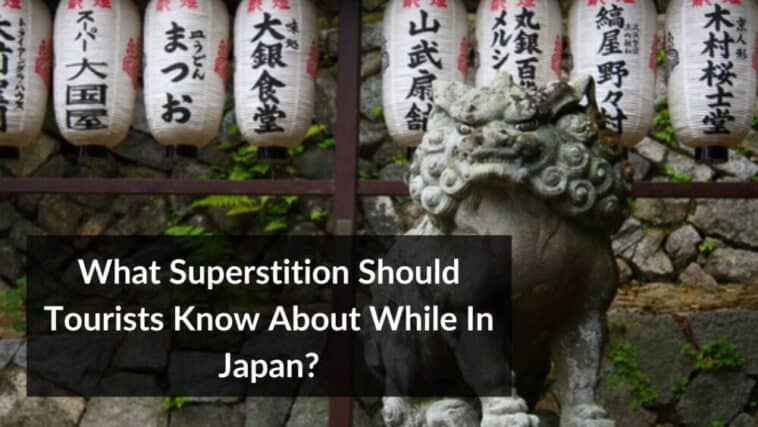Wondering What Superstition Should Tourists Know About While In Japan? We’ve made a list of Japanese superstitions you should know about before traveling to Japan. Check it out!
Traveling to Japan? Intrigued by its culture? Don’t forget about superstition! From unlucky numbers to food faux pas, learn a few key beliefs to avoid any unintentional offense and ensure a smooth, fortunate trip.
Page Contents
What Superstition Should Tourists Know About While In Japan?
Do Not Whistle At Night
Whistling is an action most of us do out of boredom and it’s an innate behavior of humans to whistle when one is in solace. If you possess the habit of whistling while chilling out then please make sure you don’t follow it while in Japan.
Although whistling is an act done out of enjoyment, the Japanese deem it as a practice that brings bad luck especially if you happen to whistle at night.


This is because the Japanese people believe that whistling at night can invite bad fortune to your life. One of the unfortunate possibilities of whistling at night in the streets of Japan includes thieves robbing you on the streets or following you to your home and stealing all your possessions.
On the other hand, the Japanese also presume that whistling at night can attract snakes that might follow you on your way.
There’s one more petrifying possibility that whistling in Japan can have and this is Japanese spirits with red faces which are referred to as Tengu abducting you while you’re out.
Now that’s a terrifying misfortune you want to avoid. Therefore, make sure not to whistle at night while you’re in Japan.
Catfish Fights Can Lead To Earthquakes
Earthquakes are a frequent occurrence in Japan due to the country’s geographical location being in proximity to the Ring of Fire which is an area on Earth where most of the seismic activities have occurred.
Catfish fighting with one another doesn’t necessarily cause earthquakes, however, ancient Japanese people believe that when catfishes behave or act violently then it’s a prediction of a deadly earthquake.

This superstition originated from a Japanese mythical creature named ‘Namazu’ which is a large catfish with a strong tail that resides in mud.
Namazu stays under the control of a Japanese god named Kashima and whenever Namazu loses control it shakes its tail vigorously causing fatal earthquakes.
Despite this being a myth, the Japanese people strongly believe that catfishes can sense earthquakes and hence they tend to tremble violently which may seem like the catfishes are fighting with one another.
In addition, Japanese scientists also presume that there’s a correlation between catfish trembling and earthquakes. Hence if you’re in Japan and you witness catfish shaking then it’s about time you take cover.
Don’t Place Your Pillow On The North Side Of Your Bed
When you have a long day you just want to rest on your bed to drain away all that weariness. But wait, is your pillow facing north? Oops, that’s just another bad omen in Japanese traditions.
Sleeping on a pillow that’s faced on the north side of your bed in Japanese customs determines shortening one’s lifespan. You may ask what’s the huge deal with sleeping facing the north side.

Well, this superstition began way early in history when Buddhism was the prominent religion in Japan.
Buddhists believe that Buddha passed away while his head was facing the north direction hence the Buddhists in Japan implemented the practice of resting the head of a deceased person facing north when they’re buried.
That being the case, most Japanese people assume that when one sleeps with their head facing the north side can diminish the life span of the person causing them to die sooner.
Therefore, if you’re in Japan and find you’re pillow to be facing north, make sure to turn the pillow the other way around.
Number 4 Is An Unlucky Number In Japan
Unlucky numbers are one of the most popular superstitions in most cultures across the world. Each culture considers a distinct number to be unfortunate.
While 13 is a number deemed unlucky by most Americans and Europeans, number 4 is regarded as an unlucky number by the Japanese people.

The Japanese people take this superstition very seriously that you won’t even find the number 4 written on addresses, and room numbers, and sometimes the Japanese people prefer not to have the number 4 on their phone numbers as well.
Furthermore, if you happen to be in an elevator in any place in Japan you won’t even find a floor that’s numbered 4.
Why are the Japanese so fearful of number 4? Well, it’s nothing but a simple linguistic dilemma.
Since the Japanese language consists of countless homophones, the word ‘Shi’ (死) which means ‘death’ in Japanese sounds exactly the same as ‘Shi’ (四) which means number 4 in Japanese.
Thus nobody in Japan is willing to associate with anything that refers to the number 4 since this number has a similar echo to the word death in Japanese.
Therefore, make sure you’re not freaked out if you don’t find a room or floor that’s numbered 4 in Japan.
Seeing Spiders At Night Bring Bad Luck
Spiders are definitely not the favorite among most people. They have eight legs, can be large, and are able to move very swiftly which makes them one of the deadliest creatures out there. Encountering a spider right before you go to bed can cause you to have nightmares.
Although this isn’t what Japanese superstitions say about spiders, trust me that seeing spiders before you fall asleep can mess with your mind as you’ll be worrying if they’ll come to you while you sleep.

However, Japanese customs state that seeing a spider at night is a symbol of thieves breaking into one’s house.
This is because it’s believed by the Japanese that spiders cast their webs during the night to hunt their prey. Thus this symbolizes thieves breaking into a house and stealing a person’s possessions.
So, if you, unfortunately, come across a spider while you’re in Japan, make sure to kill it immediately as it’s considered acceptable in Japanese traditions.
This would evade such incidents from occurring. On the contrary, seeing spiders in the morning is believed to be a good omen in Japanese culture.
Don’t Rest Soon After Having A Meal
A good meal is sufficient to make you feel lazy and sleepy right off the bat. You may want to take a quick nap right after having your meal but that isn’t the norm in Japan.
The Japanese people don’t sleep as soon as they finish their meals. This is because they believe in the superstition that resting after having a meal can turn someone into a pig or cow.
Now we’re not aware if anyone shapeshifted into a cow or pig intentionally or mystically and we may never know until someone shares their experience of turning into a lazy animal just because they slept after lunch or dinner. However, this Japanese superstition could be bogus just like most superstitions.
Some Japanese people like to assume that this superstition was fabricated by traditional Japanese parents to discourage their kids from sleeping after having meals as they thought it would make their kids lazy.
Therefore, you can rest assured that this superstition isn’t harmful like most ones we’ve come across on the list.
Don’t Cut Your Nails At Night
It’s quite a common practice in some cultures to have specific times and days to cut one’s nails. Many followers of different religions believe that Friday isn’t an ideal day to cut your nails and especially not during the daytime.
Similarly, Japanese customs also speak of certain times of the day that are not the best time to get your nails trimmed or cut.

The Japanese superstition of cutting your nails at night is once again got to do with linguistics. The Japanese term ‘Yotsume’ which is written in kanji letters as 夜爪 means ‘night nails’ in English and has the exact pronunciation as 世詰め ‘Yodzume’ which means ‘end of one’s life’.
Thus cutting your nails at night in Japanese customs ultimately means reducing your lifespan. Therefore, if you’re visiting Japan make sure to not cut your nails during the night if you wish to avoid any bad luck.
What is considered bad luck in Japan?Does Japan Have superstitions?
Ancient Japanese folklore mentions several myths that revolve around mystical beasts and creatures and there are several superstitions that come along with Japanese mythology as well. Some of the most popular Japanese superstitions are:
Whistling at night brings bad luck
Seeing spiders at night is considered a bad omen
Number 4 is an unlucky number
Trembling catfish predict earthquakes
What is considered bad luck in Japan?
The number 4 is considered bad luck in Japanese customs. This is because the number 4 is pronounced in Japanese as Shi (四) which is the same pronunciation as Shi (死) which means death in Japanese.
As a result, the Japanese people refrain from using the number 4 in their daily lives. Furthermore, floor numbers, room numbers, and even addresses in Japan don’t use the number 4.
What are some common superstitions in Japan?
Some of the common superstitions in Japanese traditions are:
Cutting nails at night
Whistling at night attracts snakes
4 is an unlucky number
Seeing spiders at night leads to robbery in one’s house
Resting after having a meal turns one into a pig or cow
Sleeping facing north reduces the lifespan
Catfish trembling predict earthquakes





